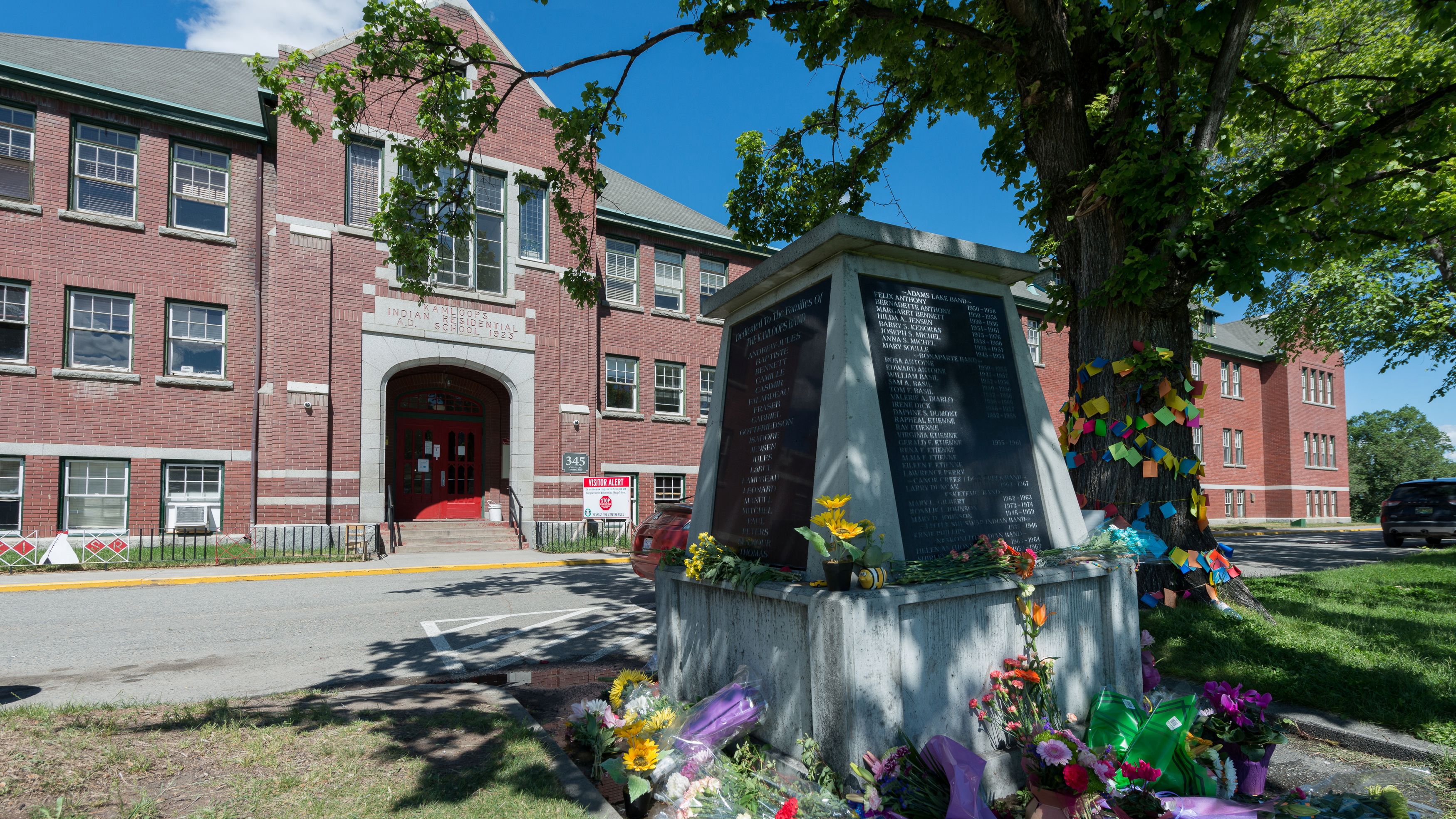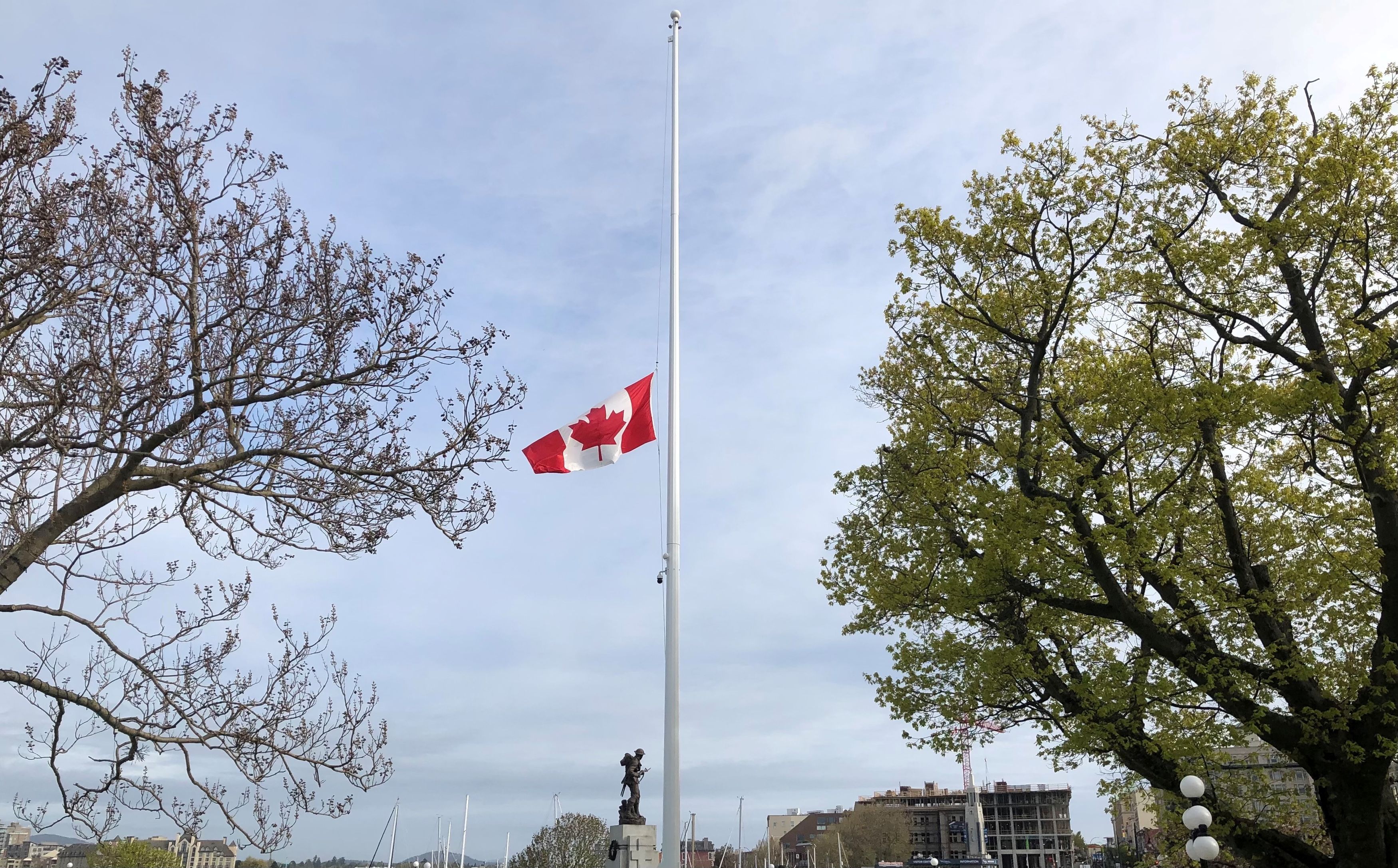
A monument to the survivors of the former Kamloops Indian Residential School is pictured in front of the school administration building in Kamloops, British Columbia, Canada, May 29, 2021. /Reuters
A monument to the survivors of the former Kamloops Indian Residential School is pictured in front of the school administration building in Kamloops, British Columbia, Canada, May 29, 2021. /Reuters
Indigenous groups in Canada are calling for a nationwide search for mass graves at former residential schools following the discovery last week of the remains of 215 children at one site in British Columbia.
National Chief of the Assembly of First Nations Perry Bellegarde told The Globe and Mail newspaper on Monday that survivors and their families "deserve to know the truth and (deserve) the opportunity to heal."
"A thorough investigation into all former residential school sites could lead to more truths of the genocide against our people," he added.
Sol Mamakwa, an Ontario MP and member of the Kingfisher First Nation, urged authorities to work with First Nations at every residential school site to "look for our lost children."
"It is a great open secret that our children lie on the properties of the former schools – an open secret that Canadians can no longer look away from," he said in a statement. "Every school site must be searched for the graves of our ancestors."
The comments came as Canada mourned the deaths of the children found last week at the former Kamloops Indian Residential School near Kamloops, British Columbia.
Flags were lowered on government buildings over the weekend and people left children's shoes outside parliament in Ottawa, in public squares and on the steps of churches as a tribute.
Canada's residential school system was set up in the 19th century to assimilate Indigenous people.
Children were forcibly separated from their parents, often never seeing them again, and were physically and sexually abused by headmasters and teachers who stripped them of their culture and language. In total, some 150,000 Indian, Inuit and Metis youngsters in total were forcibly enrolled in these schools.
The Truth and Reconciliation Commission, set up to investigate the system, called the policy a "cultural genocide" in 2015. The last residential school closed in 1996.

Canada's national flag flies at half-mast at the British Columbia Legislature in Victoria, after the remains of 215 children were discovered in a mass grave at the former Kamloops Indian Residential School site in British Columbia, Canada, May 30, 2021. /Legislative Assembly of BC handout via Reuters
Canada's national flag flies at half-mast at the British Columbia Legislature in Victoria, after the remains of 215 children were discovered in a mass grave at the former Kamloops Indian Residential School site in British Columbia, Canada, May 30, 2021. /Legislative Assembly of BC handout via Reuters
There have long been rumors within Indigenous communities of children buried at these schools.
Parents "spoke of children who went to school and never returned," according to a report by the commission that has identified 4,100 children who died from abuse or neglect at residential schools.
Still, the announcement last week that the Tk'emlúps te Secwépemc First Nation had found the remains of 215 children, some as young as three years old, buried at the site of the former Kamloops school, shocked the nation.
At a news conference on Monday, Prime Minister Justin Trudeau promised "concrete action" to support residential school survivors and their families.
"As a dad, I can't imagine what it would feel like to have my kids taken away from me," he said. "And as prime minister, I am appalled by the shameful policy that stole Indigenous children from their communities."
Last week's find "is not an exception or an isolated incident," he noted. "Residential schools were a reality... and we have to own up to it."
Indigenous communities across the country are now meeting to discuss how to investigate further mass graves, according to Grand Chief Stewart Phillip, president of the Union of British Columbia Indian Chiefs.
"It's absolutely essential that there be a national program to thoroughly investigate all residential school sites in regard to unmarked mass graves," he said.
(With input from Reuters, AFP)

